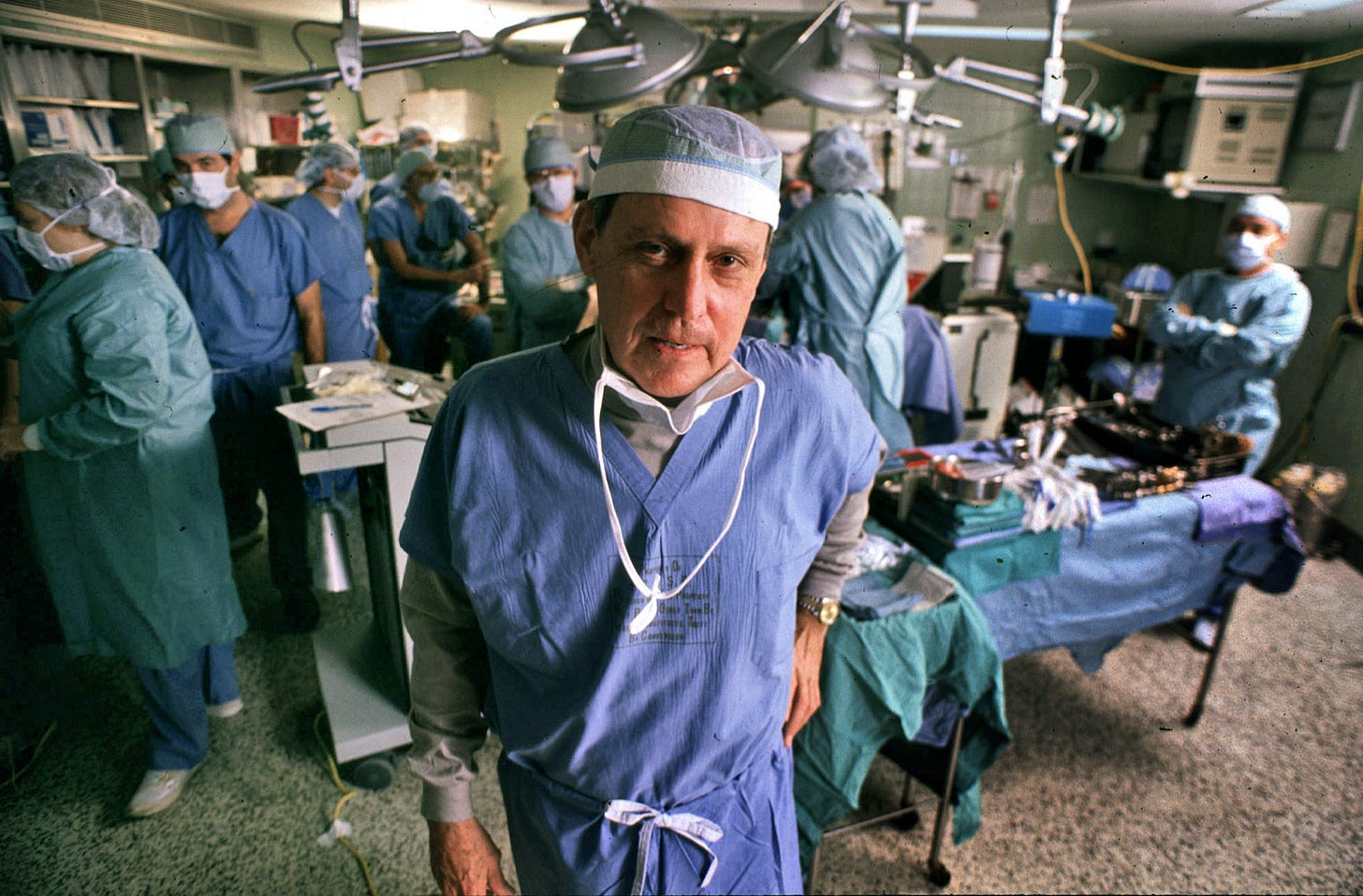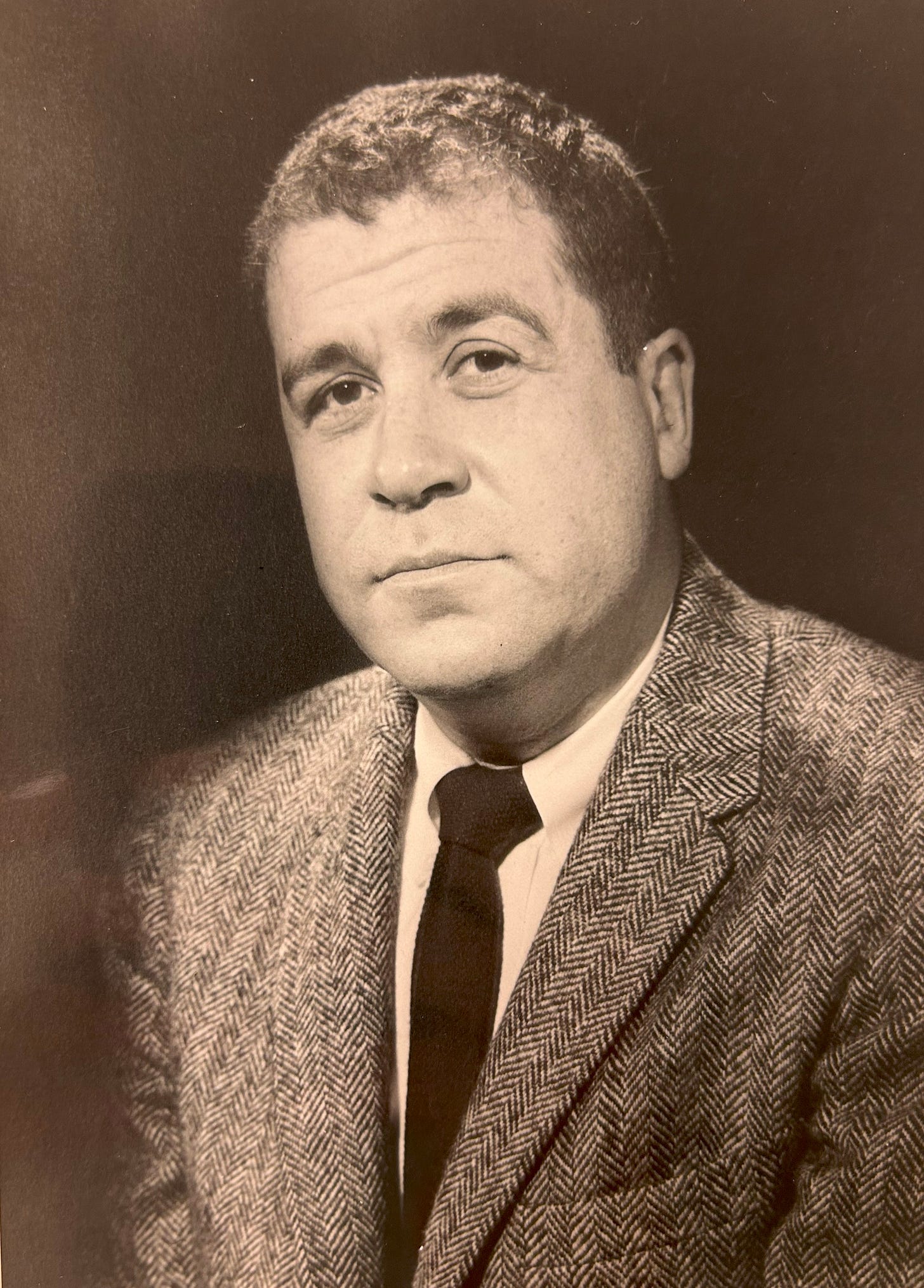Hello everyone! I’m very excited to announce that next week I will be the featured guest on the American Society of Clinical Oncology’s Conquer Cancer podcast!
The mission of the Conquer Cancer Foundation is to “accelerate breakthroughs in lifesaving research and empower people everywhere to conquer cancer.” Conquer Cancer has raised over $500 million to support research and education programs.
For the podcast, I spoke with Dr. Don Dizon, director of the Pelvic Malignancies Program at Rhode Island Hospital about the stigma around cancer. We also discussed what doctors can learn from being patients and why I don’t call young cancer patients “brave.” We end with a debate on whether cancer would benefit from a rebrand. It was a fun conversation and I thought you all would enjoy listening to it.
So, next week’s newsletter will be this interview and will land in your inboxes on Tuesday morning instead of Monday afternoon.
If you want to learn more about the people conquering cancer, you can check previous episodes of the Conquer Cancer Podcast here. You can also subscribe via your favorite podcast app.
Now on to pigs…
Last week, surgeons at Massachusetts General Hospital discharged Richard Slayman home from the hospital. Not a big deal. Thousands of patients are discharged home from the hospital every week. This hospitalization, however, was much different.
As Mr. Slayman drove away from the hospital, he carried something other than the normal accoutrement of ill-fitting socks, pink plastic bins and blue face masks collected during his two-week hospital stay. On March 16, Mass General surgeons transplanted a genetically modified kidney from a pig into Mr. Slayman’s abdomen, the first such operation in the world.
“I never thought in my lifetime I'd see this happen,” Dr. Joren Madsen, director of Mass General’s transplant center, said in an interview. “We're all ecstatic about the fact that he's done so well and that he'll be going home with a pig kidney working perfectly.”
A company based in Cambridge called eGenesis provided the kidney. eGenesis breeds pigs that contain 69 edited genes necessary to allow for successful transplantation into humans. These modifications include inserting human genes to prevent rejection by the host, removing pig genes harmful to the human and protecting the kidney from infection by pig viruses.
The surgery is a major advance in xenotransplantation, the word that describes the process of transplanting an organ from an animal into a human. Doctors hope pig organs will alleviate the shortage of human donor organs. “We are slaughtering hundreds of thousands of pigs a day anyway to provide food for human beings,” Dr. Masden said, “We feel that it is a moral imperative to try to use animal experiments and animal organs to save human lives.”
More than 103,000 people are currently on the waiting list for organs. About 17 die every day because not enough kidneys are available from living or dead donors. (Now considered routine, although not adequate to meet growing demands, we can choose via our driver’s licenses and conversations with loved ones to donate our organs.)
For much of human history, however, when humans died, their functioning organs died with them. It was not until University of Pittsburgh physician and father of modern CPR, Dr. Peter Safar advanced the concept of “brain death” that doctors (and the general public) considered taking organs from dead or dying humans to use in other humans. An anesthesiologist by training, Safar worked with a young surgeon named Bernard Fisher to develop one of the earliest cadaveric kidney transplant programs in the country.
Bernard Fisher was born in Pittsburgh in 1918, right before the end of World War I and during the height of the Spanish Flu pandemic. Growing up in the Jewish enclave of Squirrel Hill, Fisher attended the University of Pittsburgh for college and graduated from Pitt Medical School in 1943. He then travelled to Philadelphia where he completed one of the first surgical research fellowships in the country at the University of Pennsylvania.
“I was a board-certified surgeon, but I still fed rats on the weekends,” recalled Fisher in an interview later in life, “I developed a surgical technique to cannulate bile ducts in animals, keeping them alive for weeks.”
Through advances in vascular surgery, it was possible by the 1950’s, to take an organ from one animal and reattach it to another. Fisher and other physicians like him envisioned replacing failing kidneys and diseased stomachs with healthy organs harvested from cadaveric donors or grown in laboratories.
As the end of his fellowship neared, Fisher received a coveted Markle Scholar Award. Established in 1947, Markle Scholars represented the most promising young medical scientists in the United States at that time (essentially the equivalent of researchers receiving an R-01 grant from the NIH today). Each medical school nominated one person who underwent a rigorous 2-day interview process. Afterwards, approximately 25 Markle Scholars were chosen each year and were awarded five years of financial assistance so that they might continue in academic medicine or research rather than enter more lucrative private practices.
Fisher returned home to Pittsburgh and established the first Department of Surgical Research. Here, the young surgeon was able to blend clinical practice and laboratory experiments, a novel career path at the time. Fisher recalled, “Clinicians looked upon me as an animal doctor and basic researchers looked upon me as a clinical doctor. As a result, I was often asked ‘What are you going to be when you grow up?’”
Fisher and his brother Edwin, a pathologist, published dozens of articles on liver regeneration and transplant techniques. The two brothers were named “Pittsburgh Men of the Year in Medicine” in 1960 and Fisher was widely regarded as one of the national leaders of early organ transplant and liver regeneration research.
On February 14, 1964, the Pittsburgh Post Gazette reported on a surgery performed by Fisher in which he removed a healthy kidney from the wife of a critically ill man and transplanted it into her husband. The surgery, which took over two hours to perform, was "the first of its kind in the Pittsburgh district.” Using newly discovered immunosuppressants which had been shown to decrease the chance of the body rejecting the foreign organ, the prognosis was at first promising. The patient, however, died on April 28, 1964. The kidney, Fisher told the paper, was functioning normally when the patient died.
Despite this early failure, Fisher established Pittsburgh’s organ sharing network. By 1981, when celebrity transplant surgeon Tom Starzl arrived, Pitt was performing sixty kidney transplant surgeries a year. Based on this success, Starzl would go on to establish Pittsburgh as the “transplant capital of the world,” and by 1983 when insurance began to pay for liver transplants, 90% of the liver transplant surgeons around the world had trained with Starzl at Pitt.

So, what does this all have to do with cancer? That’s the second podcast announcement.
Dr. Fisher did not make his mark on transplant medicine. Instead, he turned to curing breast cancer.
This fall, I’ll be sharing the story of Dr. Fisher’s incredible life and contributions to cancer via a podcast released here on Cancer Culture. I just finished reviewing the script for the first episode and I’m SO EXCITED. It’s really good. Anyone interested in cancer is going to want to hear this never-before-told story so stay tuned (or subscribe now) for updates!










Excited to hear the podcast! What a great cliffhanger!
Wow!